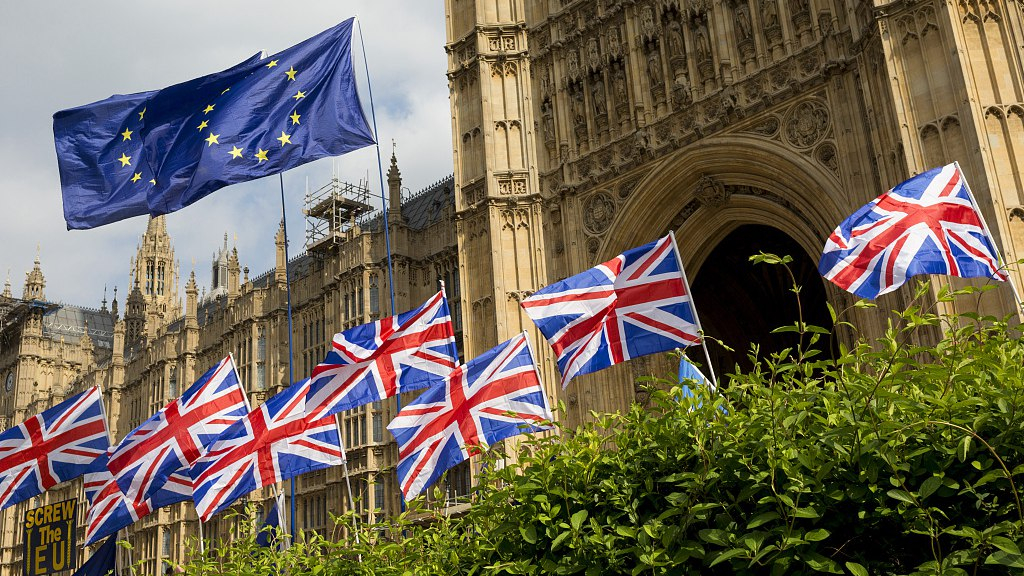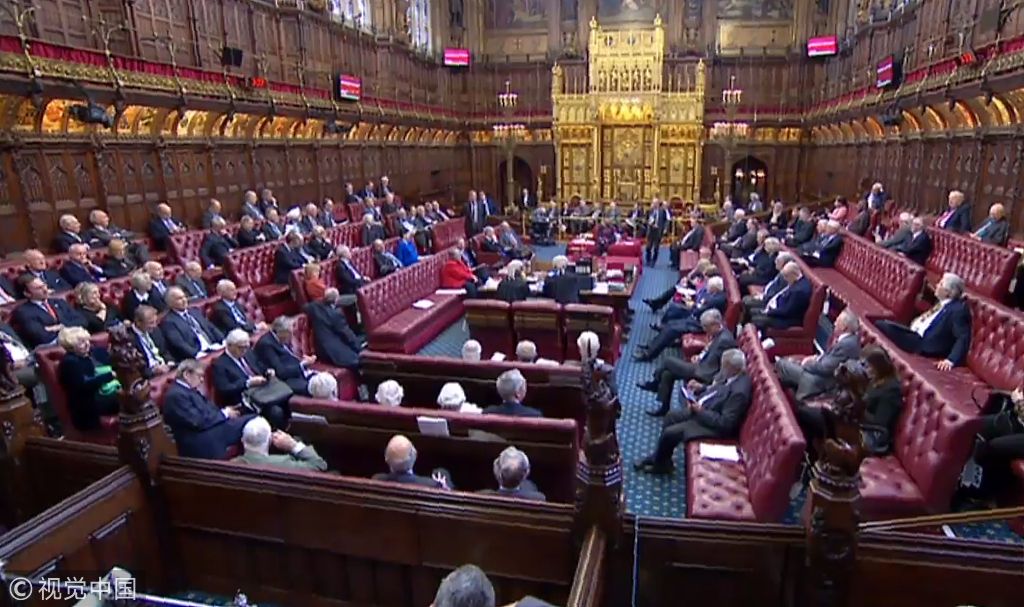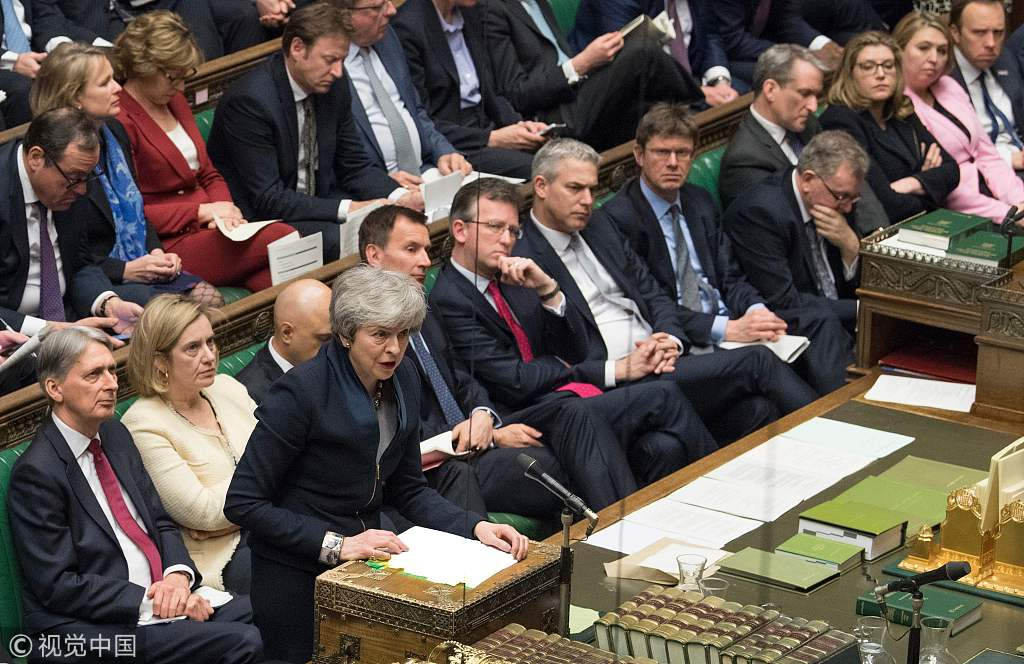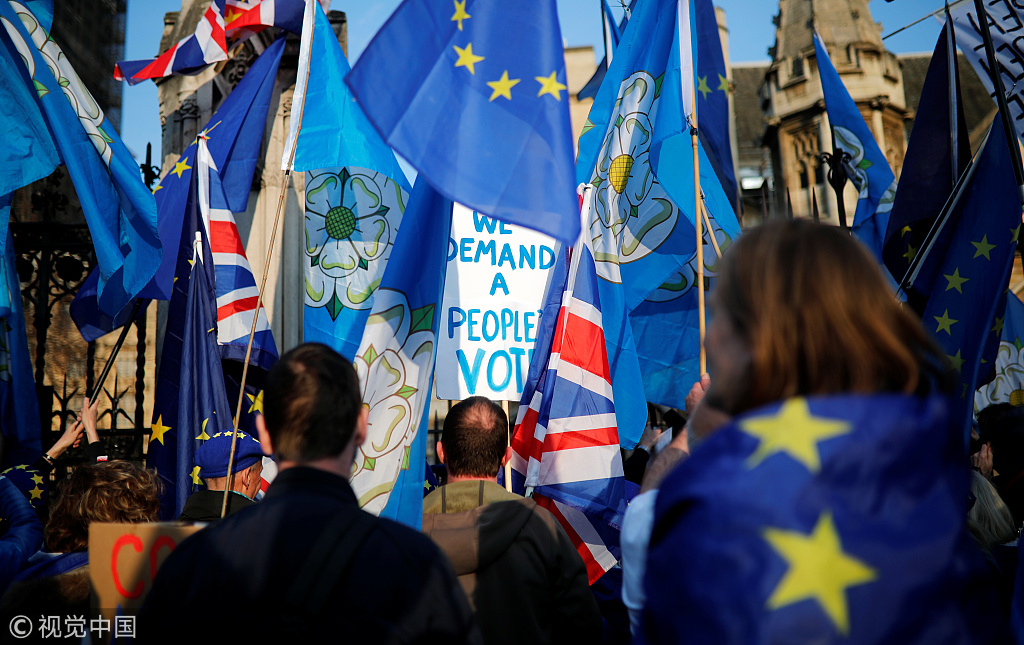
Europe
08:50, 05-Apr-2019
Brexiteer Lords try to thwart law forcing May to request EU exit delay
CGTN

Pro-Brexit lawmakers in Britain's upper house of parliament tried on Thursday to thwart the approval of a new law that would force Prime Minister Theresa May to seek a delay to prevent a disorderly EU exit on April 12 without a deal.
May has already committed to seek a short extension to Britain's European Union membership and work with the opposition Labour Party to come up with a different exit plan, in a last-ditch attempt to keep control after her own Brexit deal was rejected three times by the lower House of parliament.
But lawmakers have used an unprecedented procedural gambit to pass legislation without the approval of the government, seeking additional legal guarantees that May will not give up and lead Britain out of the bloc without a deal.

Members of the House of Lords gather together to discuss the European Union Withdrawal (No. 5) bill in the House of Commons in London, April 4, 2019. /VCG Photo
Members of the House of Lords gather together to discuss the European Union Withdrawal (No. 5) bill in the House of Commons in London, April 4, 2019. /VCG Photo
The bill passed through the lower chamber, the House of Commons, by a single vote late on Wednesday and is now in the House of Lords, an unelected body whose role is to refine and scrutinize legislation before it is approved.
The process of passing the bill through the Lords got off to a rocky start on Thursday when some members of the debating chamber – also known as peers – launched a series of attempts to delay or even halt the process.
"All that lies between us and tyranny is that we respect the conventions of both Houses," said Michael Forsyth, a pro-Brexit Conservative member of the Lords, accusing Labour Party spokeswoman Dianne Hayter of setting a dangerous precedent to try and block Brexit.
'Constitution in danger'
By long-standing convention, the government usually has sole control of the agenda in parliament, but this was overturned last month with the help of a rebellion in May's Conservative Party.

Britain's Prime Minister Theresa May attends the weekly Prime Minister's Questions (PMQs) question and answer session in the House of Commons in London, April 3, 2019. /VCG Photo
Britain's Prime Minister Theresa May attends the weekly Prime Minister's Questions (PMQs) question and answer session in the House of Commons in London, April 3, 2019. /VCG Photo
"She is in danger of tearing up our constitution in order to make a narrow party political point," Forsyth said
Thursday's debate began with long speeches on the correct procedure for the legislation and a series of votes, all of which ended in heavy defeat for the filibusterers but ate up time.
"What we are seeing today... is a small group of unelected peers in an unelected house, firstly trying to stop us considering the bill today and then trying to talk it out and no doubt seeking to go through the night to halt the Commons' desire to prevent a no deal," Hayter said.
The stalling tactic proved partially successful. Plans to complete all stages of the process in a single day had to be abandoned, but a source close to negotiations on the timetable for the bill said they expected it to be finalized on Monday.

Anti-Brexit supporters protest outside the Houses of Parliament in London, Britain, April 1, 2019. /VCG Photo
Anti-Brexit supporters protest outside the Houses of Parliament in London, Britain, April 1, 2019. /VCG Photo
The government does not have a majority in the Lords, and the body is seen as largely pro-EU. It is expected to vote in favor of the bill, hence its opponents' decision to use procedural means to block it.
The law is being rushed through a legislative process which usually takes months, to try and make sure it comes into effect before May attends a summit of EU leaders on April 10.
If successful, it would require May to get parliament's approval for the detail of any delay and allows lawmakers to propose a different length of the extension. The government has argued that it is an unnecessary measure which could have unintended consequences.
Under the revised timetable, the legislation could complete its final stages late on Monday, which would then require May to come to parliament on Tuesday and set out for what length of delay she is planning to ask the EU.
Source(s): Reuters

SITEMAP
Copyright © 2018 CGTN. Beijing ICP prepared NO.16065310-3
Copyright © 2018 CGTN. Beijing ICP prepared NO.16065310-3